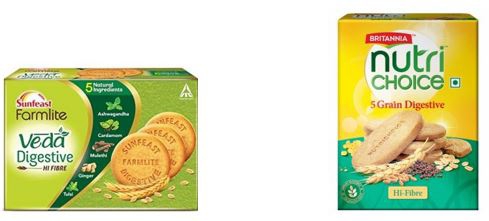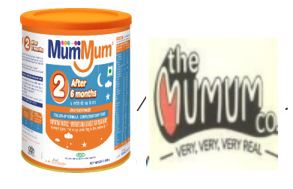Innovation is vital for the survival and productivity of every industry in the market, and the catering and hospitality industry is no exception. The packaged food industry has evolved to keep up with consumer expectations. Trademark selection and registration is vital for any packaged food company in order to build & protect its reputation.
Throughout 2021 there have been several disputed intellectual property wars with regards to Trademarks and a dramatic spike in the number of trademarks filed for registration.
The trademark feud between ITC Limited and Nestle India Limited illustrates the type of wars fought in the battlefield of the Courts, the venue in this case was the Madras High Court. In 2021, the Madras High Court put an end to a 6 years-long battle over the use of the phrase “Magic Masala”. The issue before the Court was whether the phrase qualifies as a trademark and is it capable of being monopolized? Generally, descriptive words or phrases ought not to be protected as trademarks. However, they can be registered if they attain any secondary meaning identifying a specific product. In this case therefore, what the Court had to see was whether the words “Magic Masala” was capable of distinguishing the goods of ITC Limited.
The Madras High Court held that the words “Magic” and “Masala” are words used in common parlance in the food industry and their adoption by Nestle cannot be said to be mala fide. The Hon’ble Court referring to Section 9(1) of the Trade Marks Act, 1999 which prohibits the registration of generic marks, held that it was a legitimate adoption by Nestle as no person can appropriate generic or laudatory words and such words cannot be monopolized by one person.
The next war was waged on the battlefield of the Delhi High Court. The protagonists were Britannia Industries Ltd and ITC Limited. The issue involved was the use of packaging by ITC for their digestive biscuits under their brands “Sunfeast Veda Digestive” and “Sunfeast 5-Seed Digestive”. Britannia claimed that the trade dresses of ITC’s biscuits were similar to that of Britannia’s “Nutri Choice Hi-Fibre Biscuits”. (The respective labels are included in this article for academic purposes.)
The Delhi High Court after considering the submissions of both the parties held that the packaging of both products was not similar so as to cause any deception or confusion. The Court was of the opinion that the test for a case of infringement or passing off is that of confusing or deceptive similarity in the minds of the public at large, and the courts must focus upon as to whether there is an extent of deceptive similarity between the marks irrespective of their individual dissimilar features, and that the approach must emphasize upon the similarities, rather than the dissimilarities between those marks. Therefore, relying upon a few precedents, the Court dismissed Britannia’s claims through its judgment dated April 5, 2021.
*We claim no copyright rights in the above image. It has been used for representational and academic purposes only.
A recent update in the case is that Britannia Industries had filed an appeal against the judgment to the Division Bench of Delhi High Court on the grounds that impugned judgment was being publicized heavily and thereby causing a loss of its goodwill and reputation. During the pendency of the appeal, ITC Ltd. made modifications to their packaging of the ‘Sunfeast Farmlite 5-Seed Digestive’ and ‘Sunfeast Farmlite Veda Digestive’ biscuits as to which Britannia had no objection. Accordingly, vide the judgment dated 4th August 2021 the matter was considered amicably resolved between the parties and Britannia Industries withdrew all claims for rendition of accounts, damages, and costs.
In another war fought again on the Delhi High Court battlefield between FDC Ltd. and Faraway Foods Pvt. Ltd.; the contours of “deceptive similarity” were put to test in order to determine the extent of infringement. FDC claimed to have coined and adopted the trade mark "MUMMUM" for infant foods. Faraway adopted the mark “the Mumum Co.” for snack foods. FDC contended that Faraway’s mark was similar visually, structurally and phonetically to its mark. It was held that the products of Faraway could not be consumed by infants, who are the end-users of FDC Ltd. and thus there is no overlap. It is an established principle that a trademark applied on the products which do not have the same end-users as a registered trademark cannot be said to be infringing. Except for the phonetic similarity between “MUMMUM” and “MUMUM”, no prima facie case of infringement was made out and therefore, the Delhi High Court refused to grant an interim injunction to FDC Ltd.
*We claim no copyright rights in the above image. It has been used for representational and academic purposes only.
Another instance was that of Victoria Foods Pvt. Ltd. v. Rajdhani Masala Co.; Victoria claimed to have conceived and adopted the trademark “Rajdhani” for food products, condiments, confectionery. Whereas Rajdhani Masala Co. was engaged in the business of spices under the trade names “Rajdhani Masale Co.” and “New Rajdhani Masala Co.”. In this case, the Delhi High Court granted an interim order restraining Rajdhani Masala Co. from using the trademark “Rajdhani” on the grounds of deceptive similarity. The Court concluded that the Victora had established a prima facie case in its favour.
The food industry is highly dependent on brand value. Selection of a brand and its proper protection is cardinally important for this industry. Wrong selection and adoption of a trademark and the packaging material including the colour scheme and the features used on the packaging must be carefully examined before introducing the product in the market place.



